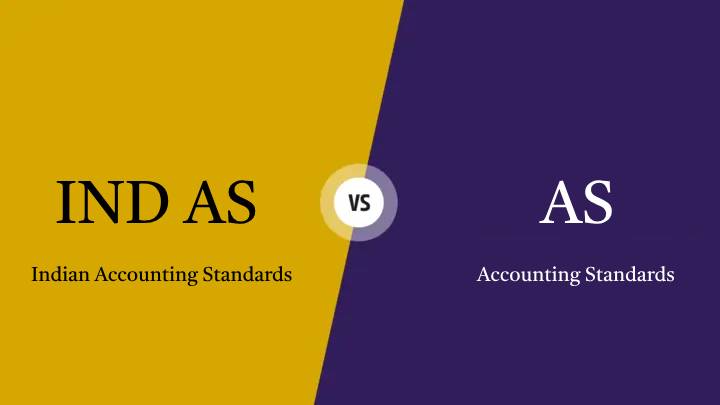When it comes to financial reporting in India, the debate between Indian Accounting Standards Ind-AS vs AS (Accounting Standards) is a hot topic. Both frameworks aim to ensure transparency and consistency in financial statements, but they differ significantly in their approach, applicability, and alignment with global standards like IFRS (International Financial Reporting Standards).
In this blog post, we’ll dive into the major differences between Ind-AS and AS, explore their pros and cons, compare their alignment with IFRS, and determine which is easier for a layman to understand.
What Are Accounting Standards (AS) and Ind-AS?
Accounting Standards (AS) are a set of guidelines issued by the Institute of Chartered Accountants of India (ICAI) to standardize accounting practices for Indian companies. They were designed to ensure uniformity and comparability in financial reporting.
Ind-AS, or Indian Accounting Standards, are converged standards based on IFRS, introduced by the Ministry of Corporate Affairs (MCA) to align Indian financial reporting with global benchmarks. Ind-AS applies primarily to listed companies, large unlisted entities, and others as mandated by the MCA.
Major Differences : Ind-AS vs AS (Accounting Standards)
To understand whether Ind-AS is better than AS, let’s first explore their key differences:
- Global Alignment:
- AS: Primarily tailored to Indian regulations, with limited alignment to global standards.
- Ind-AS: Converged with IFRS, making financial statements globally comparable.
- Fair Value Accounting:
- AS: Focuses on historical cost accounting, with limited use of fair value.
- Ind-AS: Emphasizes fair value measurement for assets and liabilities, aligning with market realities.
- Revenue Recognition:
- AS: Follows a simpler approach (e.g., AS 9), recognizing revenue based on completion of transactions.
- Ind-AS: Adopts a more comprehensive model (Ind-AS 115), focusing on performance obligations and contract-based revenue recognition.
- Financial Instruments:
- AS: Limited guidance on complex financial instruments (e.g., derivatives).
- Ind-AS: Detailed standards (Ind-AS 109) for classification, measurement, and hedge accounting.
- Presentation and Disclosure:
- AS: Minimal disclosure requirements, making financial statements less detailed.
- Ind-AS: Extensive disclosures for transparency, such as segment reporting and risk management.
- Applicability:
- AS: Applies to smaller companies and entities not mandated to adopt Ind-AS.
- Ind-AS: Mandatory for listed companies, NBFCs, and large unlisted firms meeting specific criteria.
Pros and Cons
Accounting Standards (AS)
Pros:
- Simplicity: AS is easier to understand and implement, especially for small and medium enterprises (SMEs).
- Cost-Effective: Lower compliance costs due to simpler reporting requirements.
- Familiarity: Widely used in India for decades, making it familiar to accountants and auditors.
- Tailored for India: Addresses local regulatory and tax requirements effectively.
Cons:
- Limited Global Relevance: Not aligned with IFRS, making it less useful for multinational companies.
- Outdated Approach: Relies heavily on historical cost, which may not reflect current market conditions.
- Less Transparency: Fewer disclosure requirements can obscure financial risks.
- Inconsistent Updates: AS updates are less frequent compared to global standards.
Ind-AS
Pros:
- Global Compatibility: Convergence with IFRS ensures comparability with international peers.
- Transparency: Extensive disclosures enhance stakeholder trust and decision-making.
- Fair Value Focus: Reflects real-time market conditions, improving accuracy.
- Future-Ready: Regular updates align with evolving global accounting practices.
Cons:
- Complexity: Requires advanced expertise, making it challenging for smaller firms.
- High Compliance Costs: Implementation and auditing involve significant time and resources.
- Transition Challenges: Shifting from AS to Ind-AS can be disruptive for companies.
- Overwhelming for SMEs: May not suit smaller businesses with simpler financial needs.
How Do AS and Ind-AS Compare with IFRS?
IFRS is the global benchmark for financial reporting, adopted by over 140 countries. Here’s how AS and Ind-AS stack up:
- Accounting Standards (AS) vs. IFRS:
- AS lags behind IFRS in terms of fair value accounting, revenue recognition, and financial instrument standards.
- AS is less comprehensive, with minimal focus on disclosures and risk reporting.
- Companies using AS face challenges when attracting foreign investors due to limited global acceptance.
- Ind-AS vs. IFRS:
- Ind-AS is largely converged with IFRS, but with certain carve-outs to suit Indian conditions (e.g., tax laws and regulatory frameworks).
- Key differences include treatment of foreign currency translation and employee benefits.
- Ind-AS ensures Indian companies are globally competitive, but full IFRS adoption is still a step away.
In summary, Ind-AS is much closer to IFRS than AS, making it the preferred choice for companies with international operations or aspirations.
Which Is Better for a Layman’s Understanding?

For a layman with limited accounting knowledge, Accounting Standards (AS) are easier to grasp due to their simplicity and straightforward approach. Concepts like historical cost and basic revenue recognition are intuitive and require less technical expertise.
Ind-AS, on the other hand, introduces complex ideas like fair value, hedge accounting, and extensive disclosures, which can overwhelm non-experts. However, Ind-AS’s detailed reporting can provide clearer insights into a company’s financial health for those willing to learn.
🔗 You might also consider reading the following posts from our blogs
Applicability of Accounting Standards to Non-Corporate Entities
Free Download: Model Notes to Accounts for Level IV Non-Corporate Entities
Decoding Accounting Standard 4 (AS 4) – Contingencies and Events Occurring after Balance Sheet Date
Understanding the Essential Elements of Financial Statements: A Concise Overview
Decoding Accounting Standard 3 (AS3) – Cash Flow Statements
Decoding Accounting Standard 2 (AS 2) – Valuation of Inventories
Is Ind-AS Better Than Accounting Standards?
The answer depends on the context:
- For Large Companies: Ind-AS is superior due to its global alignment, transparency, and relevance for investors. It’s a must for listed firms and those seeking international funding.
- For SMEs: AS is more practical, cost-effective, and easier to implement.
- For Global Competitiveness: Ind-AS wins, as it bridges the gap between Indian and international reporting standards.
- For Simplicity: AS is better suited for smaller entities and layman understanding.
Ultimately, Ind-AS is the future of Indian accounting, aligning with global trends and fostering investor confidence. However, AS continues to serve a purpose for smaller businesses not ready for the complexity of Ind-AS.
Conclusion
Both Ind-AS and Accounting Standards (AS) have their merits, but the choice depends on the company’s size, goals, and resources. Ind-AS, with its IFRS convergence, is ideal for large, globally focused firms, while AS remains relevant for simpler, localized needs. For a layman, AS is more approachable, but Ind-AS offers deeper insights for those who dive into its details.
As India’s economy grows and integrates with the global market, transitioning to Ind-AS is a step toward transparency and competitiveness. If you’re a business owner or accountant, understanding both frameworks is key to making informed financial decisions.



